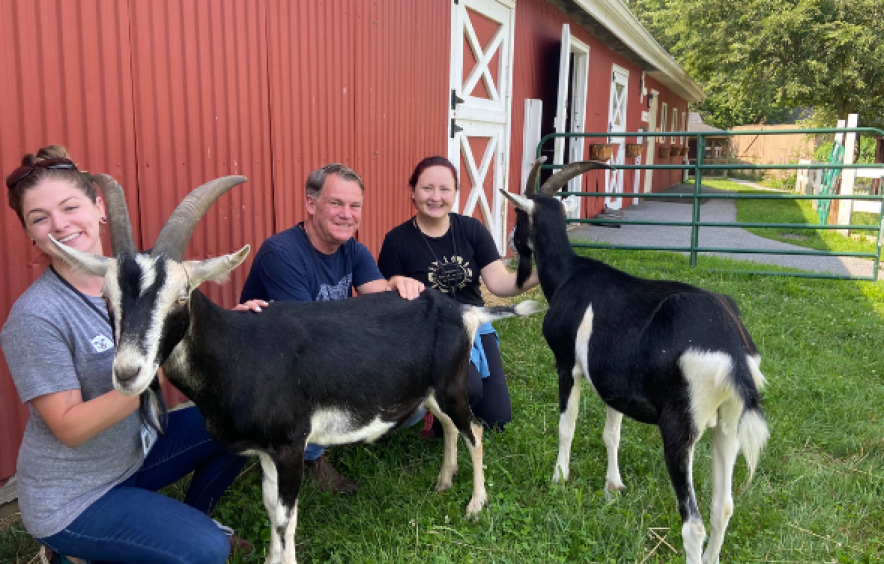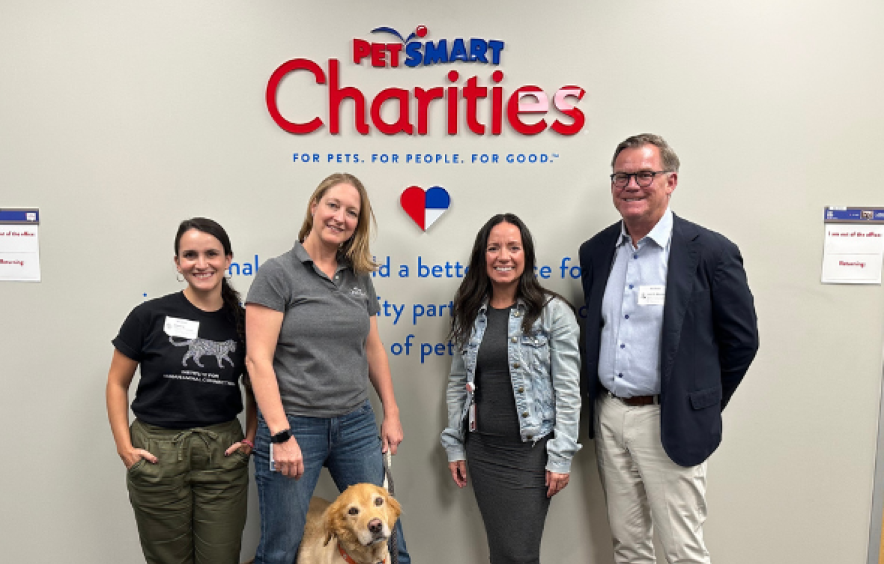Bello, B., Flynn, E., Geldhof, G.J., Yu, D., Mueller, M.K., & Morris, K.N. (2024). Measuring social and emotional functioning as a facet of Positive Youth Development among children and adolescents with mental health and learning challenges. Social Development. e12738. doi: 10.1111/sode.12738
Chastain Griffin, T., Steward, L., & Ekholm Fry, N. (2024). Standards of practice in animal-assisted interventions. In A. H. Fine, M. K. Mueller, Z. Y. Ng, T. Chastain Griffin, & P. Tedeschi (Eds.). Handbook on Animal-Assisted Therapy, (6th ed., pp. 97-109). Academic Press.
Ekholm Fry, N. (2024). Equine welfare in therapy and learning services: An overview. In L. Kogan (Ed). Animal-assisted interventions: Recognizing and mitigating potential welfare challenges (pp. 14-17). CAB International.
Ekholm Fry, N. (2024). Specific welfare considerations for animals involved in animal-assisted interventions: Equines. In A. H. Fine, M. K. Mueller, Z. Y. Ng, T. Chastain Griffin, & P. Tedeschi (Eds.). Handbook on Animal-Assisted Therapy, (6th ed., pp. 278-291). Academic Press.
Fine, A. H., Flynn, E., Hawes, S., Elvove, E., Feldman, S., Braun, L., & O’Reilly, K. M. (2024). Forward thinking: The evolving fields of human-animal interactions and animal-assisted interventions. In A. H. Fine, M. K. Mueller, Z. Y. Ng, T. Chastain Griffin, & P. Tedeschi (Eds.). Handbook on Animal-Assisted Therapy, (6th ed., pp. 27-43). Academic Press.
Gandenberger, J., Ledreux, A., Taeckens, A., Murphy, K., Forkin, J., Gilmore, A., & Morris, K. N. (2024). The Presence of a Pet Dog Is Associated with a More Balanced Response to a Social Stressor. Stresses, 4(3), 598-613.
Hawes, S.M., Rhodes, T., Hupe, T.M., Dazzio, R., Flynn, E., O’Reilly, K., & Morris, K.N. (2024). The development and validation of the One Health Community Assessment. One Health, 18, 100722. doi: 10.1016/j.onehlt.2024.100722
Hawes, S.M., O’Reilly, K.M., Mascitelli, T.M., Winczewski, J., Dazzio, R., Arrington, A., & Morris, K.N. (2024). Measuring the One Health impacts associated with creating access to veterinary care before and during the COVID-19 pandemic. Frontiers in Public Health. In press. doi:10.3389/fpubh.2024.1454866
Mascitelli, T. M., Graham, T. M., Loney, L., Applebaum, J. W., Murray, C. M., Binns-Calvey, M., ... & Morris, K. Barriers to finding and maintaining pet-inclusive affordable housing: Tenant experiences in Houston, Texas. Frontiers in Veterinary Science, 11, 1465682.
Wesley, J., Furst, G., Bello, B., & Morris, K.N. (2024). How prison dog programs challenge the racial code in correctional settings and beyond. Corrections: Policy, Practice, and Research. In press. doi: 10.1080/23774657.2024.2338848












